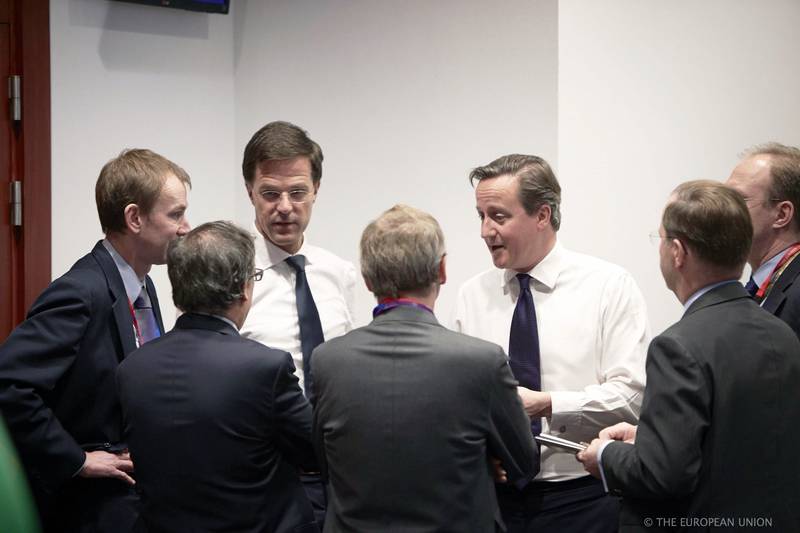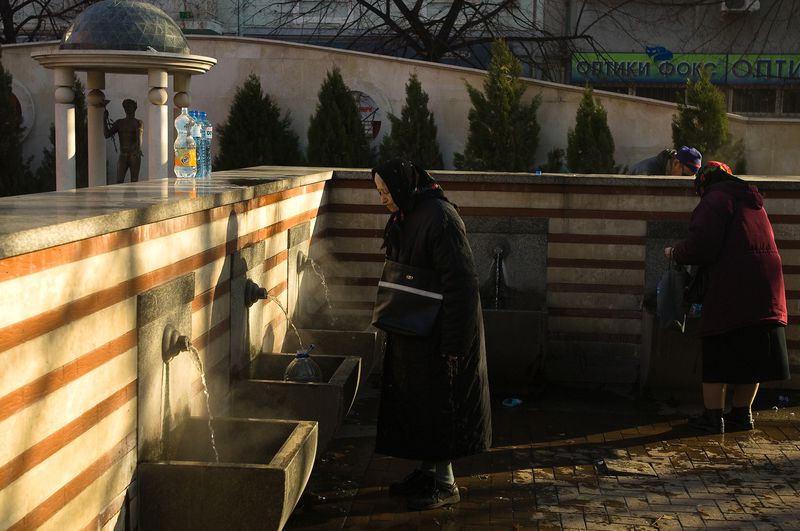Keeping Basic Infrastructure Is a Major Priority for Bulgaria for the Next European Budget
Ralitsa Kovacheva, October 21, 2011
The Bulgarian National Assembly has already sent to the European Parliament its position on the next multiannual European budget. Bulgaria is in general FOR an increase of the budget, especially in terms of the Cohesion and Agricultural policies but there are reservations regarding the European Commission's idea to introduce taxes on the financial sector, aimed at forming own resources for the European budget. More about the position of Bulgaria's parliament and how Bulgaria will be defending it we will learn from Monika Panayotova, a chairwoman of the EU Affairs Committee of the National Assembly.
euinside: Ms Panayotova, how do you find the discussions so far at this first conference to debate on the new budgetary framework of the European Union?
Monika Panayotova: So far positive are the messages for more Europe. In the same time we are aware that we are talking about more Europe with less available cash. I think that in the working groups that follow will emerge the positions of the  member states and the divergences in the debate will be better outlined. So far we are all united in the common grounds that we are for a stronger European Union, for a more competitive union, for the implementation of Europe 2020. But when we get to the numbers and policies, I think the divergences will be outlined between the member states, so that a consensus is reached after all and to enable the leaders at their forthcoming summit to have the basis, upon which the national parliaments and the European Parliament - there are representatives of the civil sector, of the academic sector, so the format is broad and I hope that the discussion will be useful.
member states and the divergences in the debate will be better outlined. So far we are all united in the common grounds that we are for a stronger European Union, for a more competitive union, for the implementation of Europe 2020. But when we get to the numbers and policies, I think the divergences will be outlined between the member states, so that a consensus is reached after all and to enable the leaders at their forthcoming summit to have the basis, upon which the national parliaments and the European Parliament - there are representatives of the civil sector, of the academic sector, so the format is broad and I hope that the discussion will be useful.
euinside: And in what panels are you going to participate more specifically?
Monika Panayotova: I am here with my colleague Dimitar Glavchev, so we will split - one of us will attend the session about the own resources - the reform of the system of own resources, and the other will attend the Cohesion Policy panel. In the former will take part Commissioner Semeta and in the latter Commissioner Hahn.
euinside: This is very interesting - one of you will ask for more European money for investments and the other will say that this reform of the system of own resources is not good?
Monika Panayotova: Yes. What we have as a position of parliament is that it is important in terms of the Cohesion Policy to underline that for Bulgaria keeping the basic infrastructure is very important a priority. What the government is doing more delicately we, as a parliament, have a clearer position regarding the new instrument to connect Europe - Connecting Europe - and we have underlined that the idea itself was very positive for a more modern infrastructure, but in the same time it should not be at the expense of the money for the Cohesion Policy. So, we are FOR this instrument to exist but it should not be at the expense of the funds for the Cohesion Policy because for us, especially as a country in the section of the less developed regions, indeed the share of the Cohesion Policy will be important.
We have great chances because our economic forecast is good. This will be and in fact the other direction of the debate for the so called "conditionalities", meaning the countries that do not abide with the Maastricht criteria in terms of deficits and public debt, there will be restrictions and stopping of EU funds. So, for us it is important that  we are in under the header of Eurostat for a really good economic forecast which gives us the possibility for more money from the Cohesion fund. This is regarding the spending part.
we are in under the header of Eurostat for a really good economic forecast which gives us the possibility for more money from the Cohesion fund. This is regarding the spending part.
In terms of the revenues part, the system for own resources, I guess that my colleague Glavchev will share the position of parliament which is - on the one hand our position and it is based on a broad format with the civil sector and the business that first our contribution must be kept the same, based on gross national income. What the European Commission president said is that we should entirely rely on the system of own resources and not to on a share of the gross national income, but this means ....
euinside: But where then more money will come in the European budget from? What does the Bulgarian parliament propose?
Monika Panayotova: More money in the European budget - what is proposed is taxes on the financial transactions and indirect European VAT of 1%. What we express as a reservation regarding the financial transactions tax is related to the fact that it has its idea and potential if we consider it in the G20 format. But if we consider it only in format EU member states we put at risk the competitiveness of the European financial markets. The other thing is that this would lead to additional, although the proponents of the idea deny it, but this would lead to additional burden for the citizens and the businesses. This is why what we are observing right now is that there is no longer a talk about a financial transactions tax but about a tax on financial deals. In other words the direction is shares-bonds because a transaction can be only a currency transaction which directly affects the citizens. So, from now on the debate begins in this direction and the other thing is that this will indeed lead to more burdens which we don't want for our citizens and businesses. This was expressed as a position of ours.
euinside: Thank you and I wish you good luck with the further discussions and the defence of the Bulgarian position.
Monika Panayotova: Thank you. I hope that we will reach a compromise solution that will be positive for all of us.
 | © European Union
| © European Union | © euinside
| © euinside Kristalina Georgieva | © Council of the EU
Kristalina Georgieva | © Council of the EU Mark Rutte, David Cameron | © Council of the EU
Mark Rutte, David Cameron | © Council of the EU | © European Parliament
| © European Parliament | © EU
| © EU